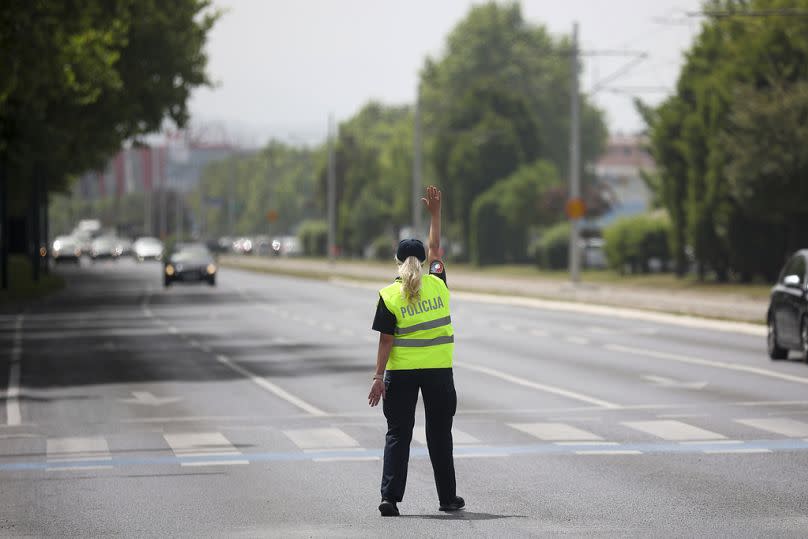Major power outage hits Balkan countries as region swelters in heatwave

A major hours-long power outage hit much of the Balkans on Friday as the southern European region sweltered in an early heatwave that sent temperatures soaring to more than 40C.
Montenegrin authorities said that an outage that lasted for several hours in the country's power distribution system left almost the entire nation without electricity. Similar problems were reported in Bosnia and Herzegovina, Albania and the coastal part of Croatia.
Nada Pavićević, a spokeswoman for Montenegro's state power distribution company, described the outage as a “disturbance of regional proportion” and said authorities were still working to determine what happened.
The exact cause of the outage was not immediately clear.
The regional power grid has been overloaded for days due to overconsumption and the use of air conditioning in high temperatures.
Bosnia’s state power company said the outage was caused by problems in a regional distribution line, while Albania’s state power company said the “extreme heat” caused the problem.
Montenegro, Croatia, Bosnia and Albania share the Adriatic Sea coastline, and decades after the Balkan wars in the 1990s, the region's power grids remain interconnected.
“The whole electric grid system of continental Europe is connected together, and that sometimes has its benefits but also has its flaws," said Danko Blažević, the head of Croatia's electric grid networks.
“The advantage is that you can import and export and sell power, but then the flaw is that when there is a failure, its basically passed from one system to another,” he added.
Sweltering heat worst in cities
The outage also caused traffic jams in the Bosnian capital, Sarajevo, with trams stopping and traffic lights not operating. Similar gridlock was reported in the Croatian port city of Split.
In Croatia's coastal city of Dubrovnik, thousands of tourists were left stranded in the mid-afternoon, with restaurants, pubs, supermarkets, ice cream parlours and others shutting their doors during the outage.
Football fans milled around some of the pubs with darkened television screens, unable to watch the games played at the European Championship tournament in Germany.
The collapse, which started just after noon on Friday, came as authorities throughout the region warned citizens to be cautious, drink water and avoid sunshine because of extremely high temperatures.
“Don’t stay in the sun between 11 am and 5 pm,” warned Serbia’s Public Health Institute in its instructions to citizens. “If you must go out, please take a bottle of water.”

Meteorologists say the heat in the region this week came from Africa, carrying sand particles that created a cloud-like layer, dimming the skyline.
The sweltering heat was worst in big cities, where concrete sizzled even in the evening, and nights offered no real respite as temperatures remained above 20C.
While hot summers are normal in the Balkans, temperatures typically do not reach such heights in mid-June, prompting weather alerts and warnings.
Earlier this week, authorities in North Macedonia imposed emergency measures through Sunday, after which the heat is expected to relent.
On Friday, authorities in Romania imposed weight limits for vehicles travelling on national roads in some countries to prevent the degradation of road surfaces.
Belgrade resident Miloš Jeftović said he is following the instructions and taking every opportunity to stay near the Serbian capital's two rivers, the Danube and the Sava. Authorities should have reduced working hours and parked water tankers in the city streets, he added.
“Personally, I don't have a problem ... but this is not OK, temperatures are above acceptable (levels),” Jeftović said.
Weather warnings were also issued in neighbouring Croatia, a tourism hot spot, where the heat wave is set to peak on Friday before an expected change of weather over the weekend that could trigger storms.
Montenegrin state television RTCG said that though the residents in the country's capital of Podgorica are used to very high temperatures, some complained the heat started too early in the year. One man told the broadcaster: “I really don't know what we are going to do.”
Experts say that extreme weather conditions are also triggered by climate change.

